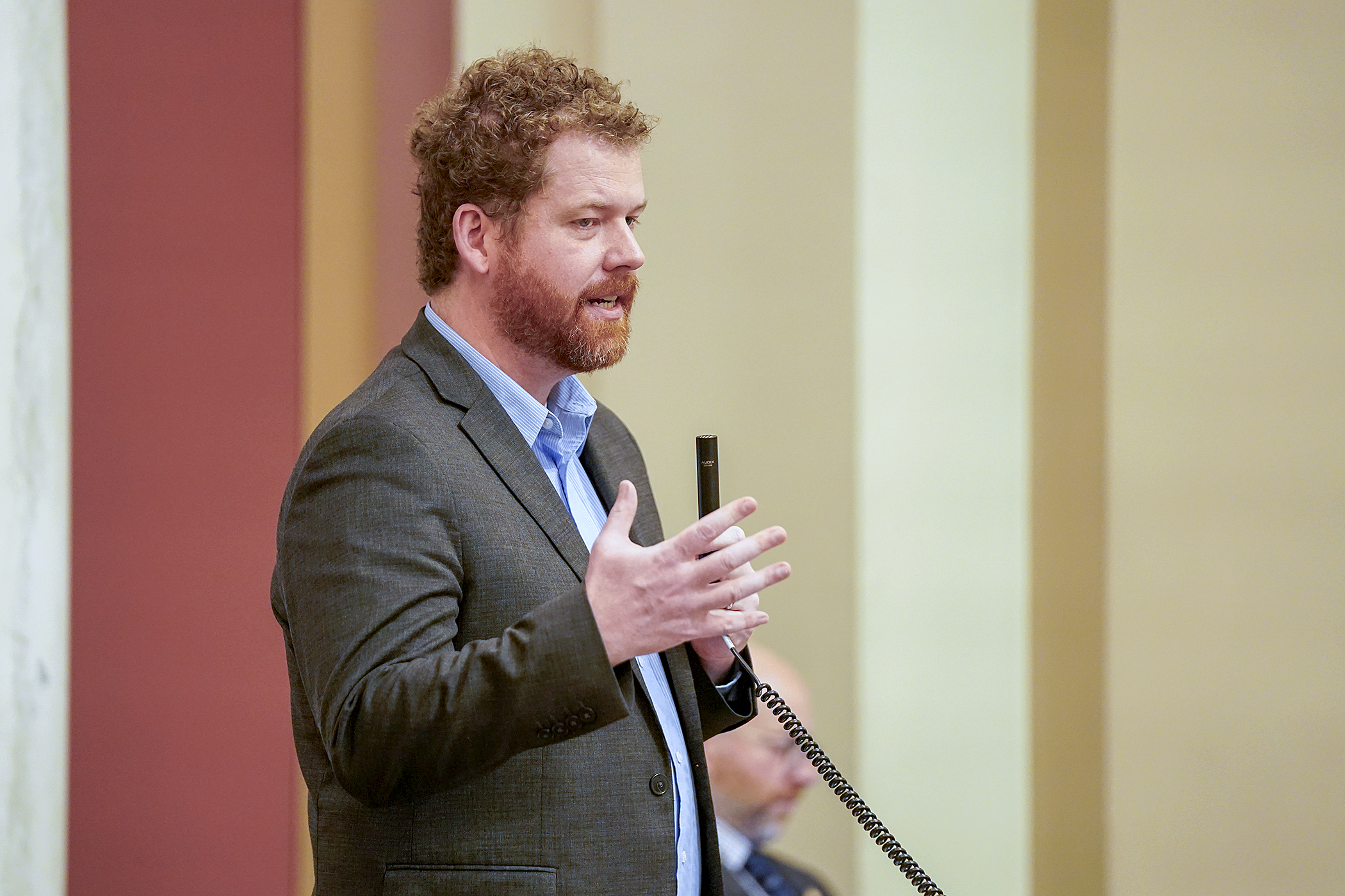House passes cannabis legislation aiming to speed up retail sales

Last summer, it became legal for adults to possess cannabis and grow cannabis plants for personal, recreational use.
But buying cannabis legally at a licensed retail business in the state is not set to begin until early next year. Rep. Zack Stephenson (DFL-Coon Rapids) aims to ensure stores will be ready.
“There are a number of provisions in this bill designed to expedite the process of setting up a good, legitimate marketplace for cannabis to displace that illicit marketplace that’s out there,” he said.
The House passed the Stephenson-sponsored HF4757, as amended several times, 69-62 Thursday. It now goes to the Senate.
Stephenson touted several ways the bill would accomplish those goals, including a lottery process that would be established by this summer and retail business applicants would get preapproved to receive licenses to sell cannabis.
Getting preapproval means that people wanting a retail cannabis license can begin work right away to build that business and be ready when retail sales become legal.
[MORE: Bills included in the cannabis policy bill]
Licensing processes
Much of the debate, and several amendments, focused on the lottery process. Republicans say it is flawed and unfairly moves away from a merit-based system outlined in last session’s sweeping legalization legislation.
The Office of Cannabis Management would create preapproved retail licenses for “social equity applicants” — people harmed by over-prosecution of cannabis laws in the past. A random lottery system would be implemented if there are too many applicants for retail licenses allotted to an area.
Lottery opponents say large out-of-state retailers could game the system and flood the office with dubious retail applications to gain a numerical advantage.
Republicans offered several amendments they said would fix flaws in the system and keep the advantage that social equity applicants were promised in the original legislation. Most were not adopted.
Rep. Nolan West (R-Blaine) unsuccessfully offered an amendment that would give social equity applicants two entries in a lottery, and another to lower from 65% to 51% the percentage of a proposed cannabis retail business that needs to be owned by individuals meeting social equity requirements to gain the advantages afforded a social equity applicant.
He argued that individuals meeting social equity requirements would need large capital investors to be successful retailers and that getting just a 35% share in a company is not sufficient to attract them.
Rep. Jessica Hanson (DFL-Burnsville) argued that lowering that threshold could lead to social equity applicants being exploited by predatory investors as has happened in other states.
Other provisions
Much of the bill originated from Office of Cannabis Management recommendations on fine-tuning the legal and inter-governmental relationships among medicinal cannabis (legalized in 2014), hemp-derived THC edibles and other products (legalized in 2022), adult recreational cannabis (legalized in 2023) and the different regulatory structures governing each substance.
The bill would make changes to the recreational cannabis law passed last year that allows up to eight cannabis plants in a single residence without a license.
Medical cannabis patients would be permitted to possess 16 plants, and transfer half of their allotment to a registered designated caregiver approved to assist patients enrolled in the medical cannabis program.
The idea is to help people with debilitating diseases and are enrolled in the state’s program to grow their own plants and obtain their medicinal cannabis at perhaps a lower cost than prescribed cannabis.
Other notable provisions in the bill would:
- allow THC beverages to be sold on tap under the current “registration” provision for edible cannabinoid products;
- allow veterans receiving care from the Department of Veterans Affairs to be automatically eligible to enroll in the state’s medical cannabis program;
- make medicinal cannabis available for any medical condition approved by a patient’s licensed health care practitioner;
- make changes in testing procedures to measure THC levels in employees;
- prohibit the sale of lower-potency hemp edibles to an obviously intoxicated person;
- permit products having only hemp-derived cannabinoids to be sent out of state for testing; and
- prohibit selling empty cannabis packaging that looks like an existing brand and give the attorney general power to enforce the ban.
Amendments
Several Republican amendments were adopted, including:
- adding to the duties of the Cannabis Advisory Council, requiring it to study the impact of legalized adult-use cannabis on the rate of cannabis use by minors;
- establishing strict restrictions on data collected by the Office of Cannabis Management and establishing an audit trail for that data; and
- moving up the date that the cannabis management office must announce the commencement of an initial application period for license preapproval to Nov. 15, 2024.
Republican amendments not adopted include:
- making cannabis cultivators qualified to receive preapproved licenses;
- changing penalties for possession of cannabis by a minor from a petty misdemeanor to a misdemeanor and changing the selling penalty from a misdemeanor to a gross misdemeanor; and
- prohibiting flavored TCH-containing gummies.
Related Articles
Search Session Daily
Advanced Search OptionsPriority Dailies
Speaker Emerita Melissa Hortman, husband killed in attack
By HPIS Staff House Speaker Emerita Melissa Hortman (DFL-Brooklyn Park) and her husband, Mark, were fatally shot in their home early Saturday morning.
Gov. Tim Walz announced the news dur...
House Speaker Emerita Melissa Hortman (DFL-Brooklyn Park) and her husband, Mark, were fatally shot in their home early Saturday morning.
Gov. Tim Walz announced the news dur...
Lawmakers deliver budget bills to governor's desk in one-day special session
By Mike Cook About that talk of needing all 21 hours left in a legislative day to complete a special session?
House members were more than up to the challenge Monday. Beginning at 10 a.m...
About that talk of needing all 21 hours left in a legislative day to complete a special session?
House members were more than up to the challenge Monday. Beginning at 10 a.m...